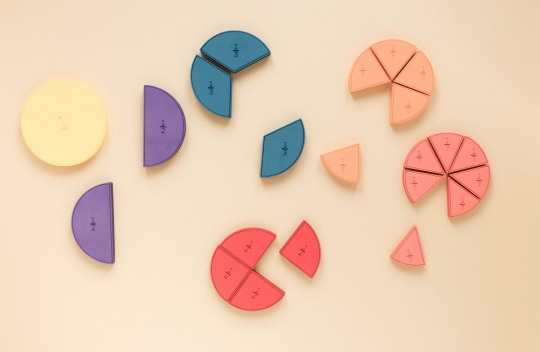
The journey from simple counting tools to sophisticated digital calculators represents one of humanity's most significant technological achievements. The evolution of the calculator spans thousands of years, transforming from basic mechanical devices to powerful online computational tools that we use today. [1]
The Beginning of the Evolution of the Calculator
The earliest calculating device, the abacus, emerged around 2000 BC in ancient Sumerian and Egyptian civilizations. This simple yet effective tool used beads on rods to perform basic arithmetic operations. For over 3,600 years, the abacus remained the primary calculation tool until the mechanical age began in Europe during the 17th century.
The Renaissance period marked a crucial turning point with Wilhelm Schickard's invention of the first mechanical calculator in 1623, followed by Blaise Pascal's device in 1642 [1]. Pascal's calculator, known as the Pascaline, could perform addition and subtraction directly, while multiplication and division were achieved through repeated operations [2].
Mechanical to Electronic Revolution
The evolution of the calculator picked up pace with the mechanical revolution. The 19th century brought significant advancements with the introduction of the Arithmometer by Charles Xavier Thomas de Colmar in 1820. This was the first commercially successful calculator capable of performing all four basic arithmetic operations [3]. The mechanical calculator industry flourished, with the Arithmometer dominating the market from 1851 to 1915 [2].
The transition to electronic calculators began in the 1960s, marking a revolutionary shift in calculation technology. Texas Instruments developed the first handheld calculator prototype, the Cal Tech, in 1967. This innovation paved the way for modern portable calculators, though the first models were still quite large and required mains power [2].
The Rise of Online Calculators
The digital age ushered in a new era of calculation tools, with online calculators emerging as powerful and accessible resources. These web-based tools offer a wide array of specialized functions, from basic arithmetic to complex financial modeling and scientific computations. Unlike their physical counterparts, online calculators can be easily updated, provide step-by-step solutions, and integrate with other digital platforms.
The evolution of online calculators continues with the incorporation of artificial intelligence and machine learning, enabling more intuitive interfaces and advanced problem-solving capabilities. This shift towards digital solutions has made complex calculations accessible to anyone with an internet connection, democratizing mathematical and analytical tools across various fields.
Modern Calculator Applications
Today's calculators offer a diverse range of specialized tools for various fields and purposes. Financial calculators help users with compound interest, loan payments, investment returns, and mortgage calculations. Scientific and mathematical tools provide unit conversions, statistical analysis, trigonometric functions, and algebraic equation solving. Practical applications include BMI and health calculators, age and date calculators, time zone converters, and currency converters, among many others.
These digital tools have become increasingly sophisticated, featuring step-by-step solution explanations, mobile responsiveness, real-time calculation updates, and integration with other digital platforms. As technology advances, so does the history of the evolution of the progress. Online calculators, in particular, continue to evolve, incorporating artificial intelligence and machine learning to offer more intuitive interfaces and complex problem-solving capabilities.
Sources:
[1] https://en.wikipedia.org/wiki/Calculator
[2] https://mathsciencehistory.com/2024/05/23/the-history-of-calculators/
[3] https://edtechmagazine.com/k12/article/2012/11/calculating-firsts-visual-history-calculators

